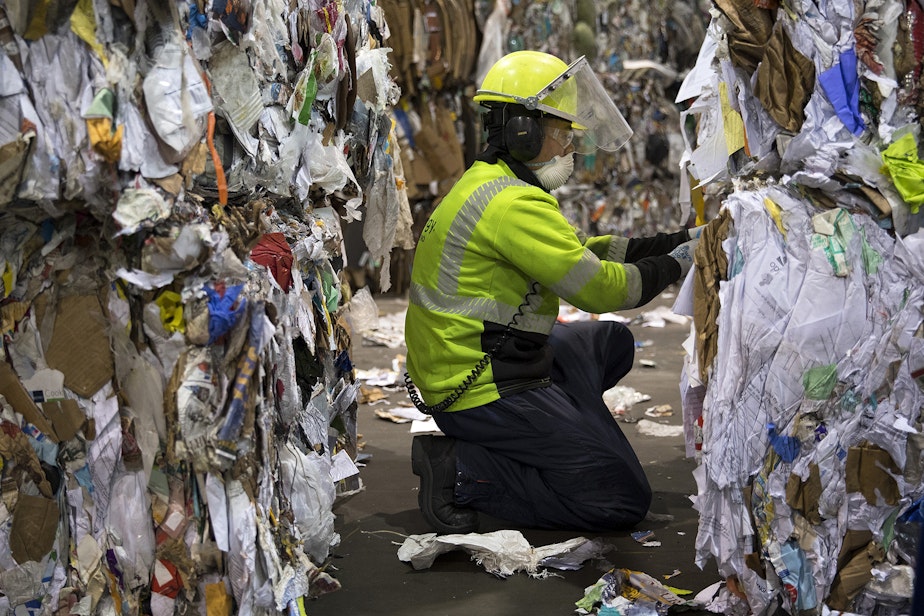Why some Washington counties may stop recycling plastic

Since China stopped buying recycled waste that it deems too dirty, a lot of recyclables in Washington end up in the landfill.
Now, Washington state regulators are making a big ask when it comes to recycling: They're asking each county to stop recycling certain products — or at least consider it — if there's no market for it. County governments oversee solid waste pickup in the more rural, unincorporated areas.
Dave Danner is chair of the Washington Utilities and Transportation Commission, which sent a letter to each county on October 18.
"We're asking them if there's no market for this commodity, we want them to really think about whether it should be collected or not," Danner said.
That could include glass, shredded paper and plastics #3-7 (ex: food wraps, yogurt containers, recycling bins, bags).
Danner said they won't restrict what counties and their solid waste companies can collect. But, he says if recycling companies can't sell plastics or other materials for profit, they're asking the state to approve higher rates on consumers.
Sponsored
Already, solid waste companies are increasing rates in 30 service areas. Otherwise they're losing profit that they used to get from selling recyclables.
The recent rate changes include a $4/month increase in parts of Pierce County, $4.50/month increase through Bainbridge Disposal, and more than $5/month increase in parts of Snohomish County, among others.
Danner said the companies are having to send glass, shredded paper, and plastic #3-7 to landfills more often, now that the international market for them is slimmer. That's a reason to reduce and reuse products first, he said.
"Well we want to promote recycling, but it has to be smart recycling. So if there's materials that they're collecting that are going to end up in the landfill anyway, let's not add to people's bills the cost of processing those," he said.
He said there are a lot of "ambitious recyclers" in Washington — people who put something in the blue bin hoping it will be recycled. That just contaminates the recycling stream, Danner said, and has to be sorted out by workers.
Sponsored
Now, glass and other products that were widely recycled before are also getting sorted out to the landfill in some counties.
"It's going to have to go through sorters and be touched by a number of hands, and for all this processing, which costs money, it's going to end up in the landfill," he said.
For now, Seattle and Tacoma's waste-collection contractors continue to find markets for residents’ old paper, metal and plastic.
Danner offers this advice to consumers: reduce the amount of plastic you purchase. And: when in doubt, throw it out. If a material is not recyclable or is food-soiled, it will contaminate the recycling stream and cause more work for sorters.




